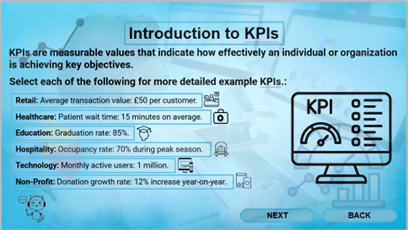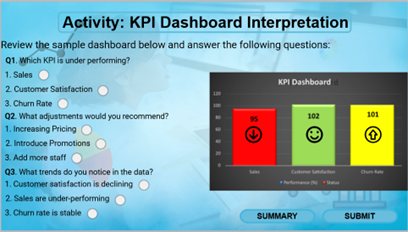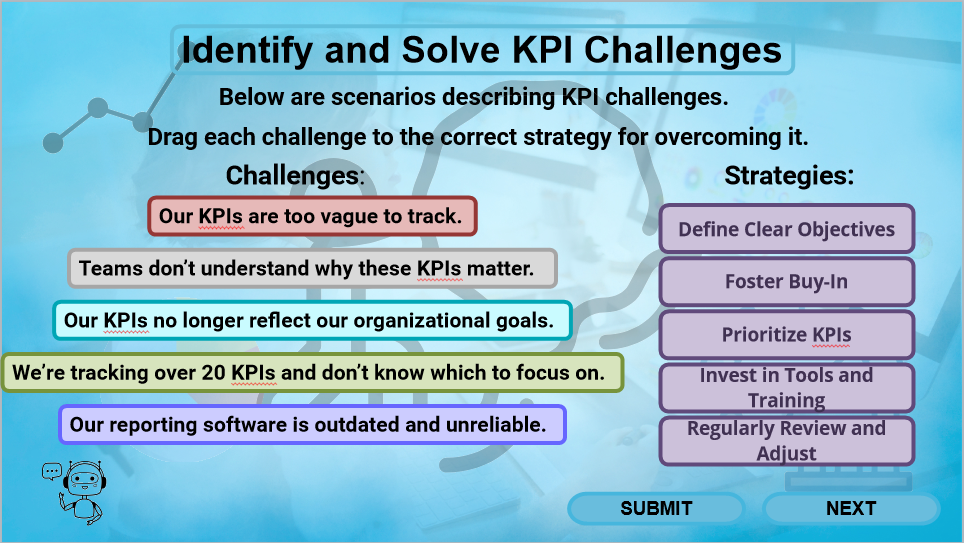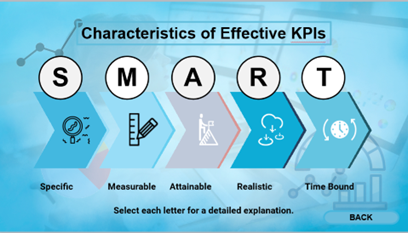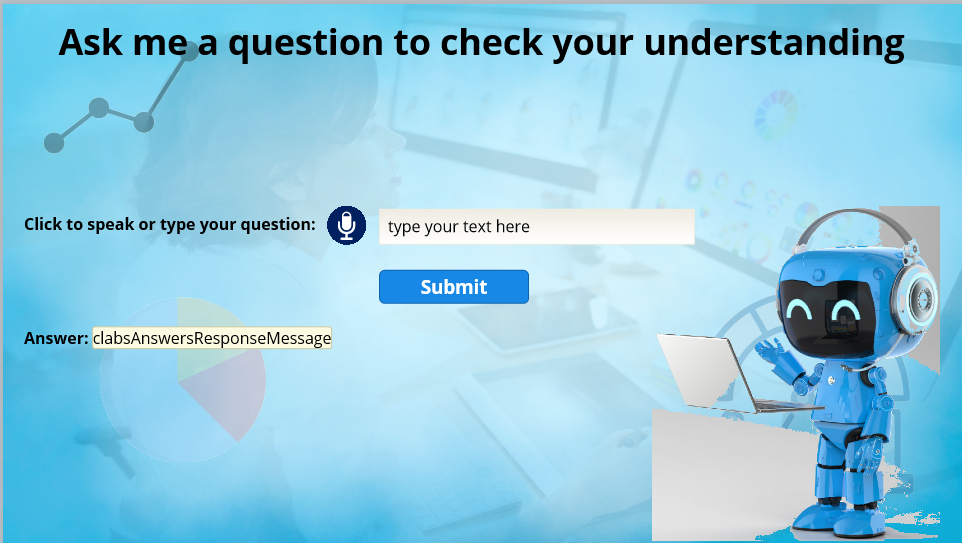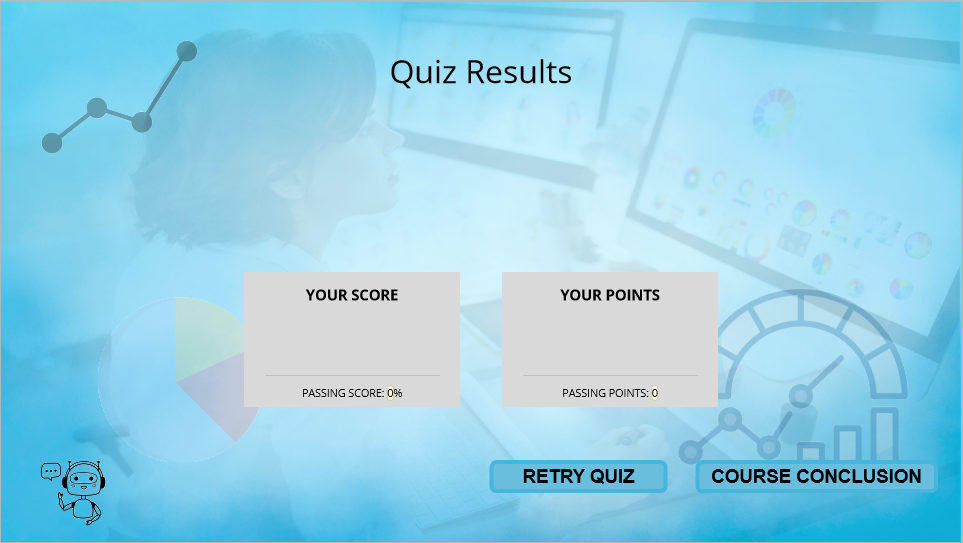Project Overview
Interactive Introduction to KPIs
I developed this scenario-based eLearning course to help mid-level managers and team leaders understand and apply the principles of creating effective Key Performance Indicators (KPIs). Designed for professionals responsible for performance tracking, the course uses interactive scenarios to make the content engaging and relatable.
Slide Highlight: Introduction to KPIs
This slide serves as the foundation of the course, introducing learners to KPIs through an interactive, industry-focused approach.
Key Features:
- Industry-Specific Relevance: Learners explore KPI examples tailored to Retail, Healthcare, Education, and more, making the content applicable to their professional context.
- Interactive Engagement: The slide includes hotspots that reveal specific KPIs for each industry, allowing learners to actively interact with the content.
- Visual Appeal: Professionally designed visuals and icons help communicate complex ideas simply and effectively.
Target Audience
Mid-level managers and team leaders. Professionals responsible for performance tracking and achieving organizational goals.
Responsibilities
- Instructional Design
- Scenario Development
- eLearning Development
- Visual Design and Animation
- Voiceover Scripting
Tools Used
- Articulate Storyline 360: Interactive design and functionality.
- Adobe Illustrator and Freepik: Visual and icon creation.
- Canva: Layout and design planning.
- ElevenLabs and Camtasia: Voiceover scripting and editing.
- Cluelabs and JavaScript: Chatbot design
- NotebookLM and Microsoft 365: Storyboard Layout and design planning.
Learning Objectives Demonstrated
- Define KPIs and explain their importance across different industries.
- Illustrate how KPIs are measurable and specific to organizational needs.
- Set the stage for understanding how to create SMART KPIs.

